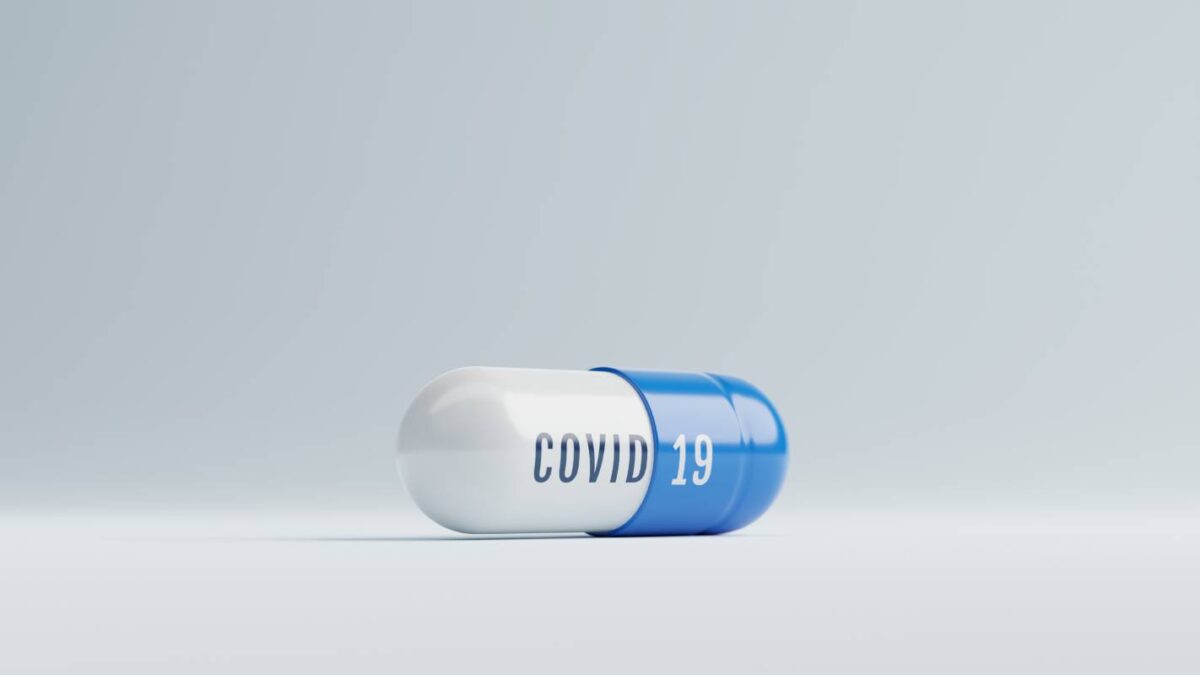Clinical Trial Data on Sabizabulin for COVID-19

COVID-19 has so far lead to over 6 million deaths worldwide, and continues to infect over half a million individuals on a daily basis [1]. Since the start of the pandemic, a number of breakthroughs treatments, including in the form of antiviral medications and monoclonal antibodies, have vastly improved treatment protocols for COVID-19 infections [2]. Most recently, biopharmaceutical company Veru announced the development of an oral treatment for hospitalized severe cases of COVID-19, sabizabulin, which has been shown to have excellent effectiveness in reducing COVID-19-associated deaths.
The company conducted a double-blind, randomized, placebo-controlled Phase II clinical trial of sabizabulin in 40 hospitalized patients with severe COVID-19 at high risk for acute respiratory distress syndrome across five different sites in the U.S, with promising results. Subjects received a daily oral dose of sabizabulin or a placebo, as well as standard care for 3 weeks or until their discharge from the hospital. Overall, results demonstrated that sabizabulin treatment resulted in an over 80% relative reduction in the number of deaths. Furthermore, sabizabulin treatment resulted in an over 70% reduction in the amount of time spent in the intensive care unit (ICU). According to one of the study’s lead investigators, “The data observed in this small Phase II study are quite dramatic and provided the support for pursuing sabizabulin in the Phase III setting” [3].
Shortly thereafter, the clinically important and statistically significant reduction in the number of deaths in response to sabizabulin was confirmed in the context of a Phase III trial – ceased prior to its completion based on the very clear efficacy of sabizabulin according to an interim analysis. This trial specifically focused on 210 patients hospitalized with moderate to severe COVID-19, having randomly received 9 mg of sabizabulin or a placebo, in addition to standard care, including remdesivir, dexamethasone, Janus kinase inhibitors, and anti-IL6 receptor antibodies. Two months in, the death rate in the sabizabulin group reached only 20%, as compared to 45% percent in the placebo group, reflecting a dramatic 55% drop.
In a COVID-19 infection, inflammatory proteins and the virus move along cellular microtubules, i.e., filaments that provide structure to cells and operate as molecularly superhighways. Sabizabulin acts by interfering with microtubules, thus preventing the SARS-CoV-2 virus from moving along them, and quenching the hyperinflammatory response that is so dangerous to patients suffering from severe COVID-19.
Critically, sabizabulin was found to be safe and well-tolerated, without incurring any treatment-associated adverse events. While sabizabulin had previously obtained a Food and Drug Administration (FDA)’s Fast-Track designation in early 2022, the data from the latest clinical trials will form the basis of an Emergency Use Authorization (EUA) application. In the meantime, Veru has scaled up manufacturing to meet the anticipated need for the drug.
Fascinatingly, sabizabulin is also being investigated as a potential treatment for prostate cancer and certain types of breast cancer – an area of active ongoing research.
This breakthrough is of great clinical significance given the need for safe drugs for severely ill COVID-19 patients.
References
1. COVID-19 Data Explorer – Our World in Data. Available at: https://ourworldindata.org/explorers/coronavirus-data-explorer.
2. COVID-19 Treatments and Medications | CDC. Available at: https://www.cdc.gov/coronavirus/2019-ncov/your-health/treatments-for-severe-illness.html.
3. Veru Announces Oral Late-Breaking Presentation of Phase 2 Data of Sabizabulin for the Treatment of Hospitalized Severe COVID-19 Patients | BioSpace. Available at: https://www.biospace.com/article/releases/veru-announces-oral-late-breaking-presentation-of-phase-2-data-of-sabizabulin-for-the-treatment-of-hospitalized-severe-covid-19-patients/.